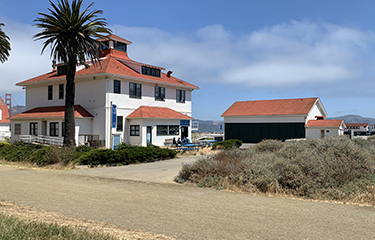The administration of U.S. President Joe Biden announced USD 50 million (EUR 46 million) in funding for projects designed to improve six national marine sanctuaries.
The funding will be used to expand and upgrade facilities at the sanctuaries, making them more climate resilient and expand their capacity for research and conservation activities.
“This investment in the future of national marine sanctuaries could not have come at a better time as many of our sanctuaries have a backlog of infrastructure and deferred maintenance projects,” NOAA Office of National Marine Sanctuaries Director John Armor said. “This funding will improve access at facilities across the country, enhance climate resilience, and help us create a sense of shared stewardship for America's most iconic natural and cultural marine resources.”
Funding includes:
- USD 2 million (EUR 1.8 million) to repair and upgrade NOAA’s office and visitor center at the Greater Farallones and Cordell Bank National Marine Sanctuaries in San Francisco, California;
- USD 17 million (EUR 16 million) to build climate resilience at Kīhei, Maui visitor and community center, support construction of a boathouse, and mitigate threats from flooding, storms, and sand at the Hawaiian Islands Humpback Whale National Marine Sanctuary in Hawaii;
- USD 5 million (EUR 4.6 million) for the design of a staff office and visitor center at the Mallows Bay-Potomac River National Marine Sanctuary in Nanjemoy, Maryland;
- USD 7 million (EUR 6.4 million) to build an office space for the Monterey Bay National Marine Sanctuary in Seaside, California;
- USD 3 million (EUR 2.7 million) to build a new marine discovery center for the Olympic Coast National Marine Sanctuary in Port Angeles, Washington; and
- USD 15 million (EUR 14 million) to build a new visitor center at the Stellwagen Bank National Marine Sanctuary in Provincetown, Massachusetts.
The money came from the Inflation Reduction Act, which set aside USD 2.6 billion (EUR 2.4 billion) for coastal resilience and fisheries support.
The White House also is attempting to designate a new national marine sanctuary across 770,000 square miles of the Pacific Ocean. The president announced in March that his administration would create the sanctuary in the Pacific Remote Islands area in the central Pacific Ocean, which would include the Pacific Remote Islands Marine National Monument and the full extent of the U.S.’s exclusive economic zone.
The plan is opposed by several groups and individuals representing the commercial fishing sector, including the Western Pacific Regional Fishery Management Council (Wespac), StarKist Samoa cannery workers, and government officials.
Photo courtesy of NOAA







